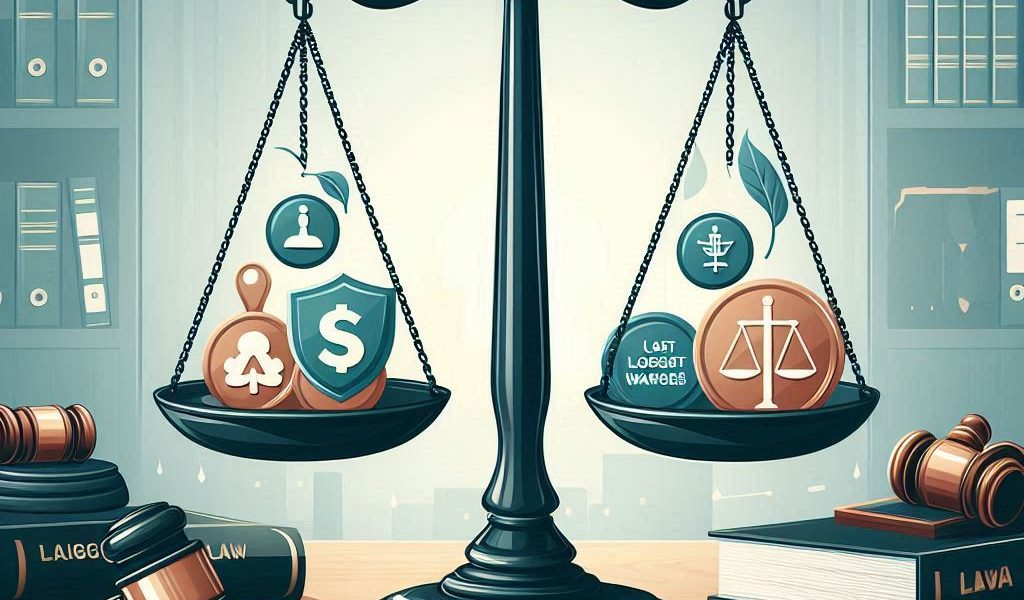When you are injured due to someone else’s negligence, you have the right to seek compensation through a personal injury lawsuit. The compensation you can claim is designed to cover the losses and hardships you suffer as a result of the accident. Understanding the different types of compensation available can help you maximize your claim and ensure you receive fair compensation for your injuries.
In this guide, we will explore the different types of damages you may be entitled to in a personal injury lawsuit, including economic, non-economic, and punitive damages.
1. Economic Damages (Special Damages)
Economic damages, also known as special damages, compensate the victim for financial losses directly related to the injury. These are measurable and quantifiable expenses that can be proven with receipts, bills, and other financial records.
a. Medical Expenses
Medical expenses are often the most significant part of a personal injury claim. They include:
- Emergency room visits
- Hospital stays
- Doctor consultations
- Surgery costs
- Prescription medications
- Physical therapy
- Assistive devices (e.g., wheelchairs, crutches)
- Future medical expenses for ongoing treatment
b. Lost Wages and Future Earnings
If your injury prevents you from working, you may be entitled to recover compensation for lost wages. This includes:
- Income lost due to missed workdays
- Reduced earning capacity if you are unable to perform the same job
- Loss of career advancement opportunities
- Benefits or bonuses you missed due to your injury
c. Property Damage
If your personal belongings, such as a car or phone, were damaged in the accident, you could be compensated for repair or replacement costs.
d. Rehabilitation Costs
Many injuries require long-term rehabilitation, such as physical therapy, occupational therapy, or specialized care. Compensation can cover the costs of these treatments to help you recover fully.
e. Out-of-Pocket Expenses
You may also be able to claim other expenses related to your injury, such as transportation costs for medical appointments, home modifications (if you have a disability), and childcare costs if you are unable to care for your children.
2. Non-Economic Damages (General Damages)
Non-economic damages, also known as general damages, compensate victims for intangible losses that are harder to quantify but significantly impact their lives.
a. Pain and Suffering
Pain and suffering compensation accounts for the physical discomfort and emotional distress caused by the injury. The severity of the injury and the long-term impact on your quality of life are considered when calculating this amount.
b. Emotional Distress
Serious injuries can cause psychological trauma, including anxiety, depression, and PTSD. Compensation for emotional distress helps address the mental and emotional toll the injury has taken on the victim.
c. Loss of Enjoyment of Life
If your injury prevents you from participating in activities or hobbies you once enjoyed, you may be eligible for compensation.
d. Loss of Consortium
Loss of consortium damages are awarded to a spouse or family member when the injured party’s condition affects their relationship. This includes loss of companionship, affection, and support.
3. Punitive Damages
Punitive damages are awarded in cases where the defendant’s actions were especially reckless, malicious, or intentional. Unlike economic and non-economic damages, which aim to compensate the victim, punitive damages are intended to punish the wrongdoer and deter similar behavior in the future.
Punitive damages are rare and are typically awarded in cases of gross negligence, such as drunk driving accidents or intentional harm.
4. Wrongful Death Damages
If a personal injury results in the victim’s death, the surviving family members can file a wrongful death lawsuit to recover damages. These may include:
- Funeral and burial costs
- Loss of financial support (future income the deceased would have provided)
- Loss of companionship and emotional support
- Medical expenses incurred before the victim’s passing
Factors That Affect Compensation Amounts
Several factors influence the total compensation awarded in a personal injury lawsuit, including:
- Severity of injuries – More severe injuries usually lead to higher compensation.
- Medical treatment required – Extensive medical treatment increases the value of the claim.
- Impact on employment – If you are unable to work for an extended period, your lost wages compensation will be higher.
- Defendant’s negligence – Clear proof of negligence strengthens your case and increases your chances of higher compensation.
- State laws – Each state has different laws regarding damage caps, which can impact how much you receive.
How to Maximize Your Compensation
To ensure you receive the maximum compensation possible, follow these steps:
- Seek Medical Attention Immediately – Proper medical documentation is essential for your claim.
- Gather Evidence – Collect accident reports, photos, videos, witness statements, and medical records.
- Consult a Personal Injury Lawyer – An experienced lawyer can help navigate legal complexities and negotiate a higher settlement.
- Keep Track of All Expenses – Document every cost related to your injury, including medical bills and lost wages.
- Avoid Speaking with Insurance Companies Without Legal Representation – Insurers may try to minimize your compensation, so it’s best to have legal guidance.
Conclusion
Understanding the types of compensation available in a personal injury lawsuit can help you determine what you are entitled to and ensure you receive fair financial recovery. Whether you are dealing with medical expenses, lost wages, emotional distress, or other losses, seeking legal advice can help you navigate the process and maximize your claim.




